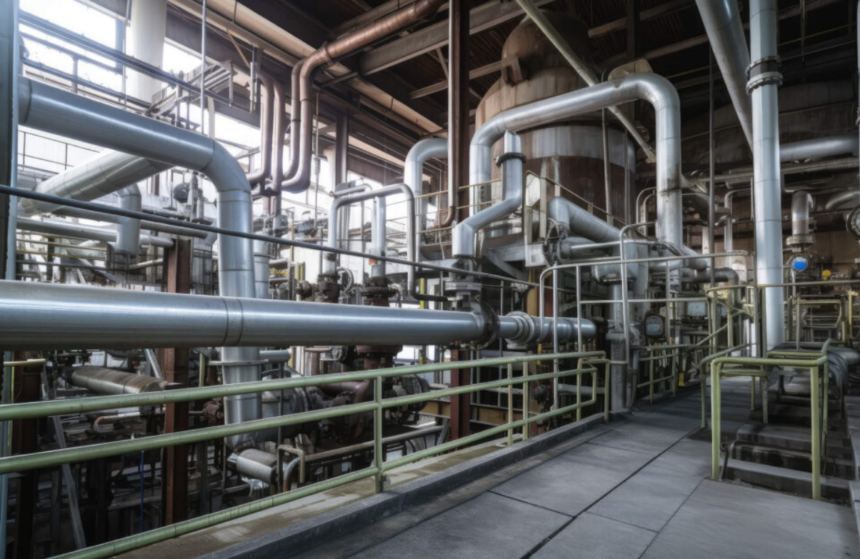In industrial settings, filtration systems play a crucial role in maintaining operational efficiency, product quality, and environmental sustainability. From removing contaminants and pollutants to ensuring equipment reliability and compliance with regulations, industrial filtration is essential for a wide range of applications across various industries.
This article will explore the reasons why industrial filtration is essential and the key benefits it provides to businesses and society as a whole.
1. Contaminant Removal
One of the primary purposes of industrial filtration is to remove contaminants from fluids, gases, and air streams. Contaminants such as particles, debris, dust, and pollutants can have detrimental effects on equipment performance, product quality, and worker safety if left unchecked.
Industrial filtration systems, including filters, strainers, and separators, are designed to capture and remove contaminants, ensuring that only clean and pure fluids are used in industrial processes.
2. Equipment Protection
Industrial equipment, such as pumps, compressors, turbines, and engines, is susceptible to damage and wear caused by contaminants in fluids and lubricants. Industrial filtration helps protect equipment by removing abrasive particles, sediment, and other harmful substances that can cause premature equipment failure and downtime.
By installing effective filtration systems, businesses can extend the lifespan of their equipment, reduce maintenance costs, and improve overall reliability and performance.
3. Product Quality
In industries such as pharmaceuticals, food and beverage, electronics, and automotive manufacturing, product quality is paramount. Industrial filtration plays a critical role in ensuring that products meet stringent quality standards by removing impurities, contaminants, and particulates from raw materials, process fluids, and final products.
Filtration systems help prevent product defects, contamination, and recalls, ensuring that products are safe, reliable, and compliant with regulatory requirements.
4. Process Efficiency
Efficient industrial processes rely on clean and pure fluids, gases, and air streams to operate smoothly and effectively. Industrial filtration helps improve process efficiency by maintaining the cleanliness and integrity of process fluids, reducing the risk of clogs, blockages, and equipment malfunctions.
Filtration systems also help optimize process parameters, such as flow rates, pressure levels, and temperature control, leading to:
- Higher productivity
- Lower energy consumption
- Reduced operating costs
5. Environmental Protection
Industrial activities can have significant environmental impacts if proper measures are not taken to mitigate pollution and emissions. Industrial filtration helps protect the environment by capturing and removing harmful substances, such as:
- Particulate matter
- Volatile organic compounds (VOCs)
- Hazardous chemicals from industrial effluents and emissions.
By installing effective filtration systems, businesses can minimize air and water pollution, reduce their carbon footprint, and comply with environmental regulations.
6. Worker Health and Safety
Exposure to airborne contaminants and pollutants poses health risks to workers in industrial environments. Industrial filtration helps safeguard worker health and safety by removing harmful substances from the air and creating a clean and breathable work environment.
Filtration systems, such as dust collectors, fume extractors, and ventilation systems, capture and contain hazardous particles and gases, preventing respiratory problems, allergies, and other health issues among workers.
7. Regulatory Compliance
Regulatory agencies impose strict requirements and standards for air and water quality, emissions control, and workplace safety in industrial facilities. Industrial filtration plays a crucial role in helping businesses comply with regulatory requirements by removing pollutants, contaminants, and hazardous substances from industrial processes and emissions.
By investing in effective filtration systems, businesses can avoid costly fines, penalties, and legal liabilities associated with non-compliance and demonstrate their commitment to environmental stewardship and sustainability.
8. Sustainable Practices
In today’s increasingly environmentally conscious world, businesses are under pressure to adopt sustainable practices and reduce their environmental footprint. Industrial filtration supports sustainability efforts by minimizing resource consumption, reducing waste generation, and promoting the efficient use of raw materials and energy.
Filtration systems help businesses operate more sustainably by conserving water, reducing emissions, and minimizing the release of pollutants into the environment, contributing to a cleaner, healthier planet for future generations.
Harnessing the Power of Industrial Filtration
Industrial filtration is essential for maintaining operational efficiency, product quality, and environmental sustainability in a wide range of industries. From contaminant removal and equipment protection to process efficiency and regulatory compliance, industrial filtration plays a crucial role in ensuring the smooth and safe operation of industrial processes.
By investing in effective filtration systems, businesses can protect their equipment, enhance product quality, safeguard worker health and safety, and demonstrate their commitment to environmental responsibility. With the right filtration solutions in place, businesses can achieve their operational goals while minimizing their environmental impact and contributing to a cleaner, healthier planet.















